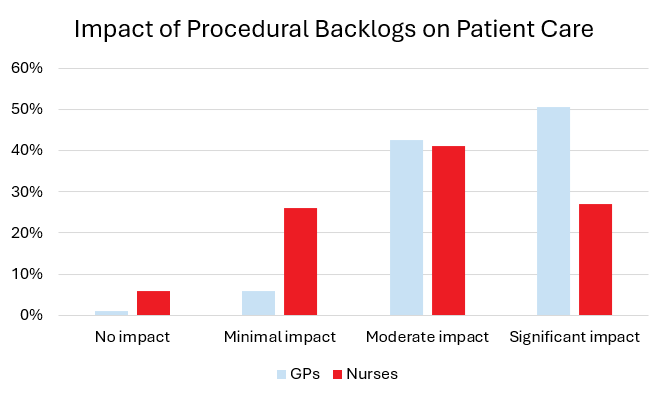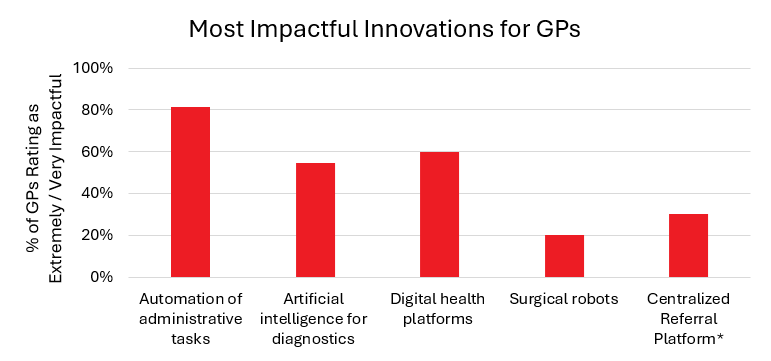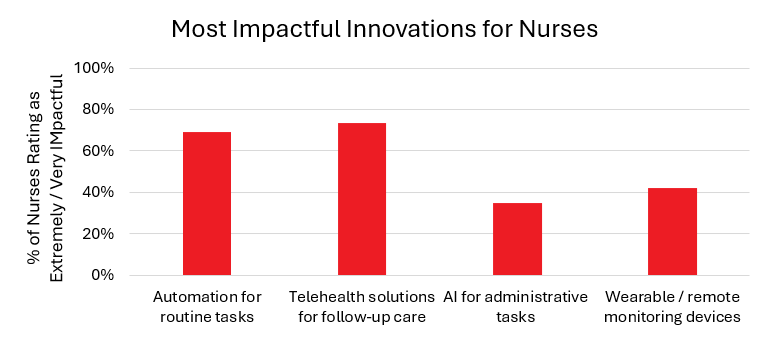Canada’s healthcare system is grappling with an increasing backlog of medical procedures, diagnostics, and treatments. General practitioners (GPs) and nurses, at the forefront of patient care, face tremendous pressure due to these delays. A recent Leger survey of 100 nurses working in hospitals and 100 GPs across Canada highlights the severe impact procedural backlogs are having on both healthcare providers and patients. In this blog, we will explore the key barriers to addressing this crisis and how innovative medical technologies can help alleviate the burden.
The Impact of Procedural Delays
According to the survey, almost all GPs and over two thirds of nurses report that procedural backlogs are having a moderate to significant impact on their ability to provide timely care. For GPs, delays in diagnostic procedures and surgical referrals are leading to worse health outcomes, including disease progression that could have been prevented with earlier intervention. Nurses, on the other hand, are struggling with routine patient care, especially in pre- and post-operative monitoring.
Below is a graph that highlights the significant impact procedural backlogs have on patient care:

Key Barriers to Reducing Backlogs
Both GPs and nurses face common barriers when trying to reduce procedural delays. The survey identified three primary obstacles:
1. Staffing Shortages: Frequently mentioned unaided as a major concern, GPs and nurses identify it as the most critical issue that is preventing facilities from reducing backlogs.
2. Technology Integration Gaps: Many healthcare facilities lack advanced technological tools, such as AI and automation, which could help streamline processes and reduce burdens on staff.
3. Communication Issues: Poor coordination between facilities, departments, and providers exacerbates delays, contributing to longer referral and diagnostic wait times.
The Role of Medtech in Alleviating Backlogs
Amidst these challenges, healthcare professionals are looking to innovative technologies to help ease the pressure. The survey reveals that GPs and nurses alike believe that the medtech industry can play a pivotal role in addressing these backlogs. The solutions they are calling for include:
1. Automation of Routine Tasks: Both GPs and nurses see automation as critical. Automating routine tasks such as scheduling and patient record management would allow more time for direct patient care.
2. AI Solutions: GPs are particularly interested in AI-powered diagnostic tools that can accelerate imaging analysis and provide decision support for triage. 54% of GPs believe AI could significantly improve efficiency.
3. Telehealth and Remote Monitoring: Nurses have identified telehealth as a powerful tool that may help create space in hospitals despite backlogs. Majority of nurses believe that telehealth, along with remote monitoring, can reduce the strain on hospital staff without sacrificing patient care.
4. Centralized Referral Platform: A significant percentage of GPs (30%) also believe in the need for a centralized referral platform that can help identify alternative locations for patients and minimize wait times.

*mentioned unaided

Medtech as the Path Forward
Canada’s healthcare system is at a critical juncture. Procedural backlogs are overwhelming healthcare providers and putting patient health at risk. However, innovative medtech solutions such as AI-driven diagnostics, automation, and telehealth offer a clear path forward. These technologies, if implemented effectively, can reduce delays, improve patient outcomes, and alleviate the burden on healthcare professionals.
While technology alone cannot solve the crisis—staffing shortages and communication issues must also be addressed—medtech offers hope for a more efficient and resilient healthcare system. Now is the time for medtech manufacturers to step up and provide the tools that healthcare professionals are actively seeking.



